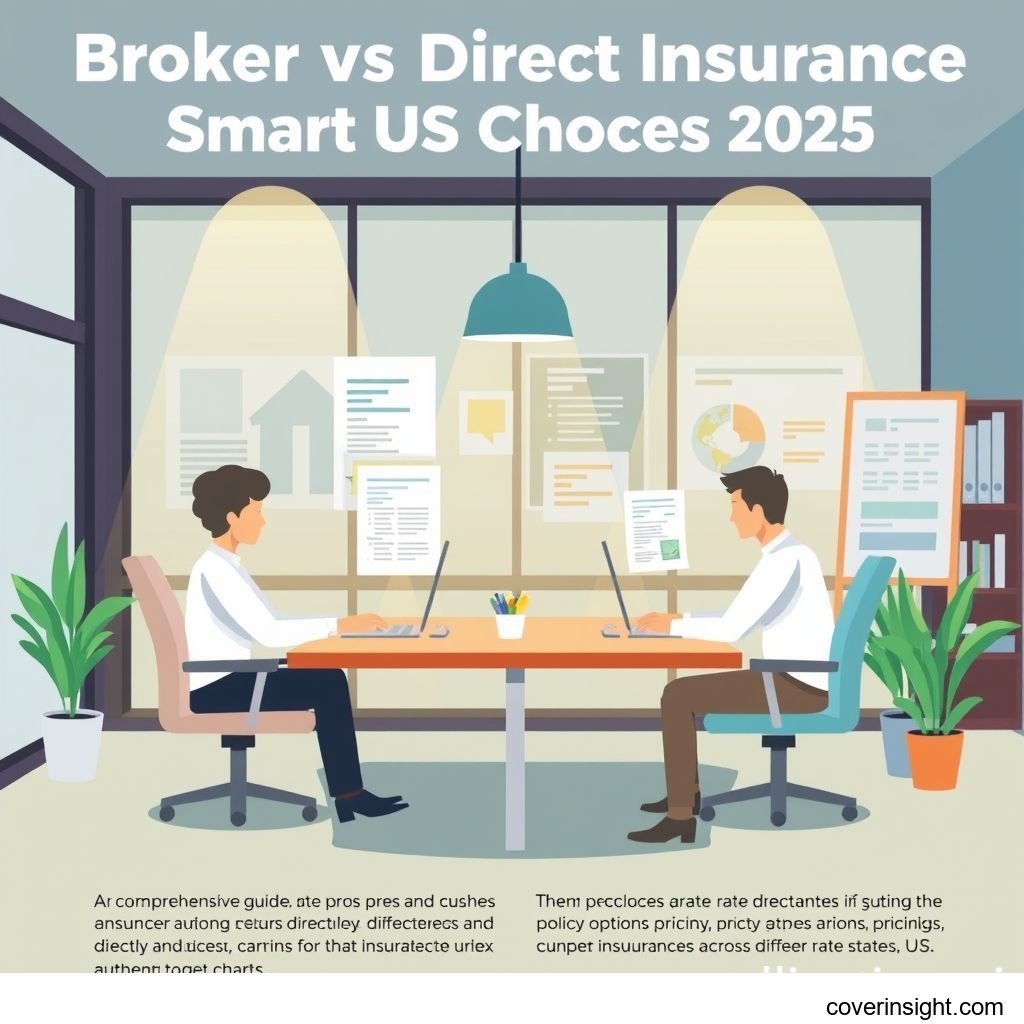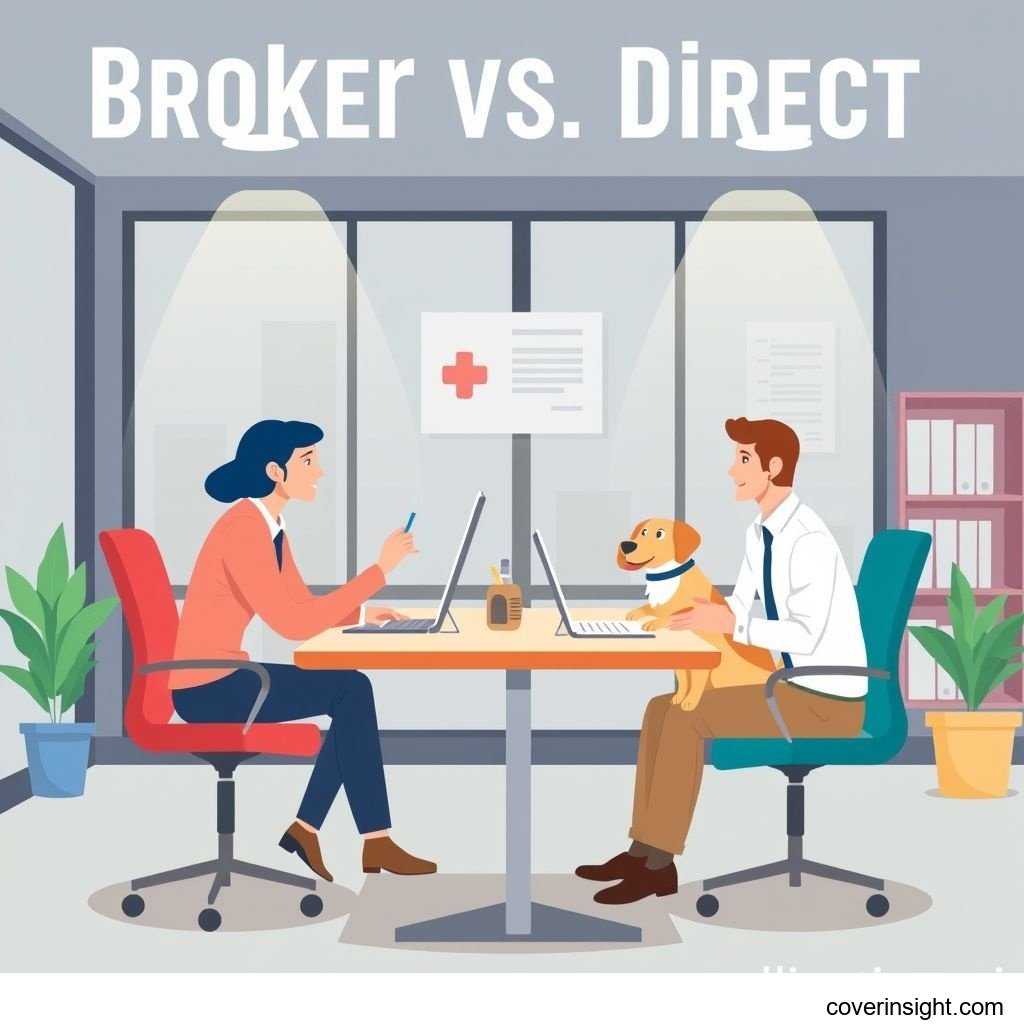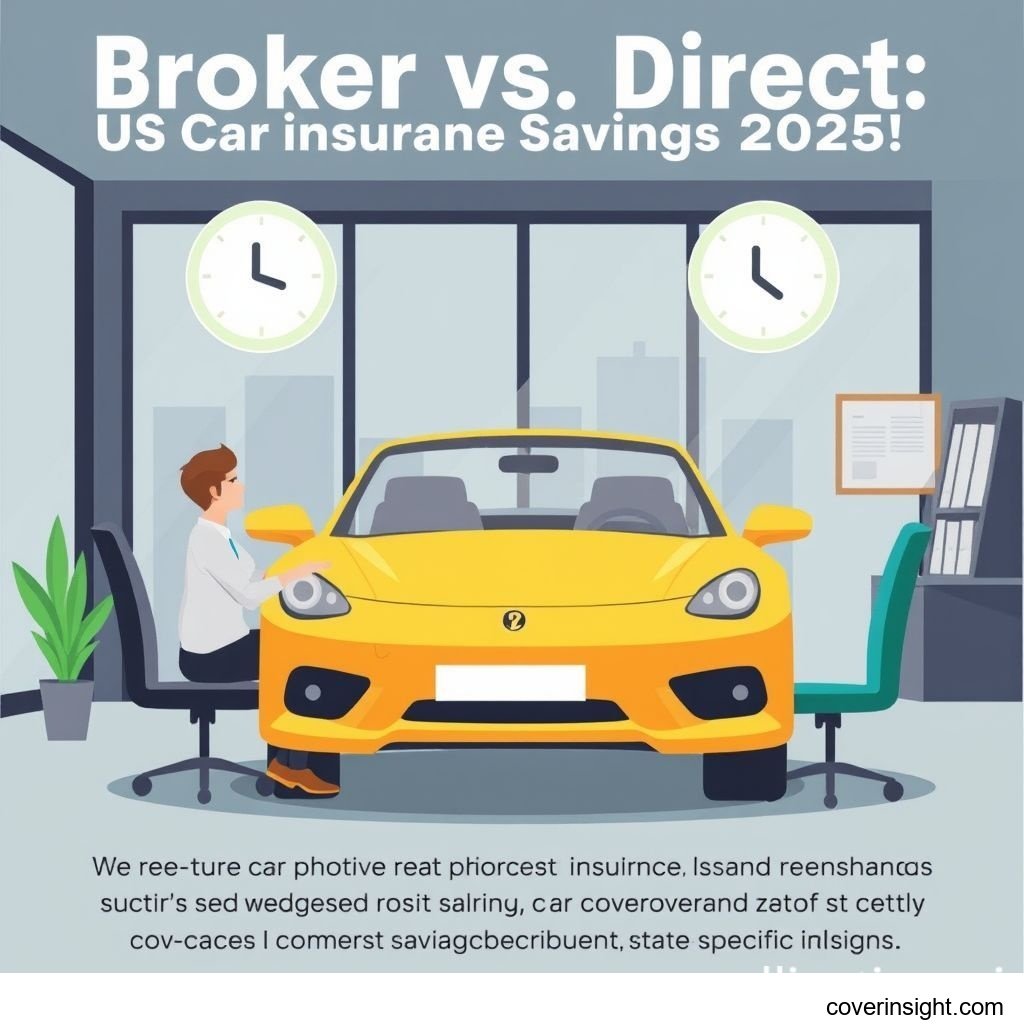Introduction
Navigating the landscape of insurance in the US can feel like a maze, especially with the choices expanding year by year. For 2025, understanding the fundamental differences between opting for an insurance broker versus going direct to an insurance company is more crucial than ever. This decision can significantly impact not just your premiums, but also the breadth of your coverage, the level of personalized service you receive, and ultimately, your financial security. Whether you're securing auto, home, health, or life insurance, making an informed choice is key to finding the right fit for your unique needs.
Coverage Details
When you're sifting through insurance options, the details of what's covered—and what's not—are paramount. The type of channel you choose, be it a broker or direct, doesn't inherently change the types of policies available, but it can affect how easily you understand and compare them.
What’s Included
Typically, both brokers and direct insurers offer a comprehensive range of standard coverages. For auto insurance, this includes liability (bodily injury and property damage), collision, comprehensive, uninsured/underinsured motorist, and personal injury protection (PIP) or medical payments. Homeowners insurance usually covers dwelling, personal property, liability, and additional living expenses. Health insurance plans, especially those compliant with the Affordable Care Act (ACA), include essential health benefits like emergency services, hospitalization, prescription drugs, and maternity care. Life insurance varies from term to whole life, offering a death benefit.
The primary difference lies in the comparison and customization aspect. A broker, acting as an intermediary, can shop multiple carriers to find policies that best align with your specific needs, potentially uncovering niche coverages or riders you might not know to ask for directly. For instance, if you live in an area prone to specific natural disasters, a broker might highlight insurers known for robust flood or earthquake coverage, even if it's not a standard offering from every carrier. This can be particularly helpful for specialized policies, such as small business insurance, where unique risks might require tailored solutions.
Common Exclusions
No matter how robust a policy seems, there are always exclusions. For homeowners insurance, common exclusions include damage from floods (requiring separate flood insurance, often through the National Flood Insurance Program), earthquakes (also usually separate), mold, and neglect. Auto policies typically exclude intentional damage or racing. Health insurance may exclude cosmetic procedures, off-label drug use, or experimental treatments. Life insurance usually has a suicide clause (voiding the policy if the insured dies by suicide within the first two years).
The challenge with direct insurers is that you often need to be proactive in digging into the policy language to uncover these exclusions. A broker, conversely, often takes on the role of explaining these "gotchas" upfront, helping you understand the limitations of a policy before you commit. They can also advise on specific riders or additional policies that can fill these gaps, offering a more holistic approach to your protection. This proactive guidance can save you a significant headache down the line, ensuring you don't discover a critical gap in coverage after an incident occurs.
Cost Analysis
For many, the bottom line is, well, the bottom line. How much does insurance broker vs direct cost? It's a common misconception that brokers always make insurance more expensive. In reality, the cost dynamics are a bit more nuanced.
Price Factors
Several factors influence your insurance premiums, regardless of whether you go through a broker or direct. These include your age, location, claims history, credit score (in most states), the type of coverage and deductible you choose, and for auto insurance, your driving record and vehicle type. For health insurance, your age, location, and plan type are significant factors.
The perceived cost difference often comes down to access to options. A direct insurer can only offer you their own products and pricing. Their rates might be competitive, but they are limited to that single company's underwriting rules and risk assessment. On the other hand, an independent broker works with multiple insurance companies. They can often compare rates from dozens of carriers, sometimes finding a policy with similar or even better coverage for a lower price than you might find directly from a single insurer. This is particularly true for complex situations or specialized risks where one insurer might be more competitive than another. According to a 2023 survey by the National Association of Insurance Commissioners (NAIC), while consumer direct-to-company interactions are rising, a significant portion of consumers still value the ability to compare multiple quotes, a service often facilitated by brokers.
Saving Tips
Whether you opt for a broker or direct, there are smart strategies to trim your premiums. Bundling multiple policies (e.g., auto and home) with the same carrier often leads to significant discounts. Increasing your deductible can lower your monthly premium, though it means more out-of-pocket expense if you file a claim. Maintaining a good credit score (where permissible) can also make a difference. For auto insurance, safe driving discounts, anti-theft device discounts, and even telematics programs that monitor your driving habits can save you a pretty penny.
Here's where a broker can really shine: they can identify obscure discounts you might qualify for across various carriers that a direct website might not highlight. For instance, I recall a client in Austin, Texas, a small business owner who was struggling to find affordable liability insurance directly. After consulting with a broker, they discovered several carriers offered a substantial discount for businesses with specific safety certifications, which they already had but hadn't thought to mention. The broker helped them secure a policy that was nearly 20% cheaper than their previous direct quote, proving that sometimes, "the juice is worth the squeeze" when it comes to getting expert help. For more comprehensive insights, you might want to check Insurance Resources Global.
FAQs
How much does insurance broker vs direct cost?
The cost isn't fixed; it varies widely. While a broker typically earns a commission from the insurance company (which is already factored into the premium, not an added fee you pay), their ability to compare numerous quotes often results in a net savings or better value for the consumer. Direct insurers save on commission but may not always offer the absolute lowest price for your specific profile, as they only have one set of rates.
What affects premiums?
Premiums are influenced by a multitude of factors including your age, location, claims history, credit score (in most states), driving record (for auto), health status (for life/health), the type of coverage limits and deductibles you choose, and even your lifestyle. Risk assessment is at the core of all premium calculations.
Is it mandatory?
Certain types of insurance are indeed mandatory. Auto liability insurance is required in almost every U.S. state. If you have a mortgage, your lender will typically require homeowners insurance. Health insurance isn't federally mandated as it once was, but some states still have individual mandates or offer subsidies through marketplaces like Healthcare.gov to encourage coverage. Consequences of not having mandatory coverage can include fines, legal penalties, or significant financial exposure.
How to choose?
Choosing between a broker and direct depends on your comfort level and needs. If you prefer a hands-on approach, enjoy research, and are comfortable navigating complex policy documents, going direct might suit you. If you value personalized advice, want multiple quotes without doing all the legwork, and prefer a single point of contact for all your insurance needs, a broker is likely a better fit. Always check with your State Insurance Departments for local regulations and consumer resources. For more specific guidance tailored to the US market, consider visiting US Insurance Home.
Consequences of no coverage?
The consequences of no coverage can be severe. Without auto insurance, you could face hefty fines, license suspension, vehicle impoundment, and be personally liable for damages in an accident. Without health insurance, medical bills from an unexpected illness or injury can lead to financial ruin. Lacking homeowners insurance puts your most valuable asset at risk from perils like fire or theft. In essence, going without necessary insurance is playing a dangerous game with your financial future.
Author Insight & Experience
Based on my experience observing the insurance landscape in the US over the years, the "right" choice between a broker and going direct often boils down to a blend of personal preference and the complexity of your insurance needs. For simple, straightforward policies, direct might be a breeze. But when things get a bit knotty—perhaps you have a unique property, a niche business, or a health condition that complicates standard health insurance applications—that's when a good broker truly earns their keep. They're not just selling policies; they're problem-solvers, acting as your advocate and guiding you through what can sometimes feel like a bewildering amount of options. It's often about getting that peace of mind that comes from knowing someone's got your back, especially when you're trying to make sure all your financial ducks are in a row.








Comments